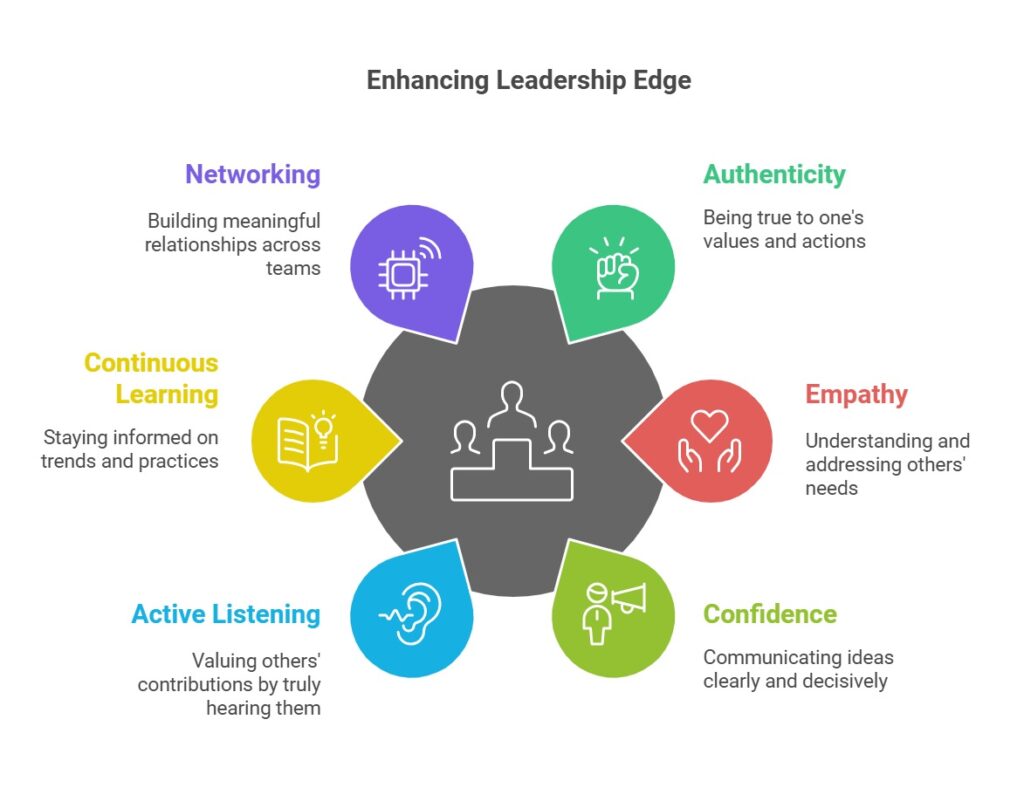Why Influence Outshines Authority in Modern Leadership
Leadership transcends titles and formal positions. The most effective leaders know how to influence and inspire others, whether or not they have authority. Mastering this balance can significantly enhance your leadership edge, giving you presence, gravitas, and power in any environment.
Breaking Leadership Myths
Leadership isn’t confined to the C-suite. Misconceptions like “Only those at the top can lead” or “A title equals influence” limit potential. The truth is, leadership is accessible to anyone willing to connect authentically and act with intention. As Ralph Nader reminds us,
“The function of leadership is to produce more leaders, not more followers.”
Building Gravitas and Presence
Leadership gravitas stems from qualities that inspire trust and respect:
- Authenticity: Be true to your values and let your actions reflect them.
- Empathy: Understand and address the needs of others with genuine care.
- Confidence: Communicate your ideas clearly and stand firm in your decisions.
- Active Listening: Show you value others’ contributions by truly hearing them.
These traits create a magnetic presence, drawing people to your vision and fostering collaboration.
Leading Without Authority
To lead without authority, you must leverage your personal credibility, foster relationships, and align people’s needs with your vision. As mentioned by Harvard Business Review,
“Influence is the ability to get others to act in ways that you want them to, even when you don’t have control over their actions.”
One key strategy for influencing others without authority is by building trust and credibility. People are more likely to follow someone they trust, regardless of their position. This can be achieved by demonstrating competence, integrity, and reliability.
Moreover, building alliances within your organisation is crucial. By forming strong relationships and gaining buy-in from others, you create a network of support that extends your influence. Mutual respect and understanding go a long way in persuading people to act in ways that support your objectives, even if they don’t report to you directly.
A further essential aspect of influence is showing initiative. When you contribute value—whether through expertise, ideas, or actions—you naturally draw others to support your initiatives.
Finally, effective communication is indispensable. Influencers with authority communicate clearly and compellingly, often framing their requests in ways that appeal to others’ goals and values. By articulating a shared vision and aligning it with the needs of the team, you can inspire action even without formal power.

Leadership is a journey defined by authenticity and a desire to make a difference. When you inspire and influence others through your actions—not just authority—you cultivate a leadership presence that drives impact and change.
As John Maxwell says,
“Leadership is influence—nothing more, nothing less.”
Lead authentically, and your presence will inspire others to follow.
For clarity, get in touch with us about our trust building workshops, listening skills and leadership courses in Singapore.



